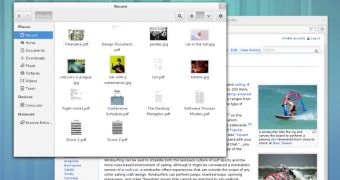Javier Jardón has announced today, November 27, the second development release of the GNOME 3.8 desktop environment.
The development of the GNOME 3.8 is well under way and the developers have announced a few major changes already.
First of all, GNOME 3.7.2 (the name of the development version of the 3.8 branch) will be the first one to ship without the infamous fallback mode.
Ever since the original announcement made by the GNOME developers that they are considering dropping the fallback mode altogether, citing the lack of testing, the fact that it's in maintenance, and other reasons, people have been more aware of the changes in the upcoming release.
Another major change, although not as surprising, is the decision to exclusively rely on GStreamer 1.0. This change has been in the works for quite some time, so people already should have gotten used with the idea.
According to the developers, to compile GNOME 3.7.2, users can jhbuild modulesets, which uses the exact tarball versions from the official release.
A slight complication is that gnome-control-center 3.7.2 does not build against network-manager-gnome 0.9.6.4 (users will need the current master), so the network panel will not be built.
As usual, GNOME 3.7.2 comes with a lot of core and app updates, such as Anjuta 3.5.1, Orca 3.7.1, Seahorse 3.7.1, and Evolution 3.7.1.
Other major new versions include Eye of Gnome 3.7.1, Epiphany 3.7.1, Evince 3.7.1, gnome-control-center 3.7.1, gnome-shell 3.7.1, GStreamer Base Plugins 1.0.2, GStreamer 1.0.2, GTK+ 3.7.0, mutter 3.7.1, Nautilus (Files) 3.7.1, Totem 3.6.2, and Tracker 0.14.3, just to name the major packages.
Check out the official announcement for a complete list of updated packages, accompanied by their appropriate changelogs. Download GNOME 3.7.2 right now from Softpedia. This release is a snapshot of early development code. Although it is buildable and usable, it is primarily intended for testing and hacking purposes.

 14 DAY TRIAL //
14 DAY TRIAL //